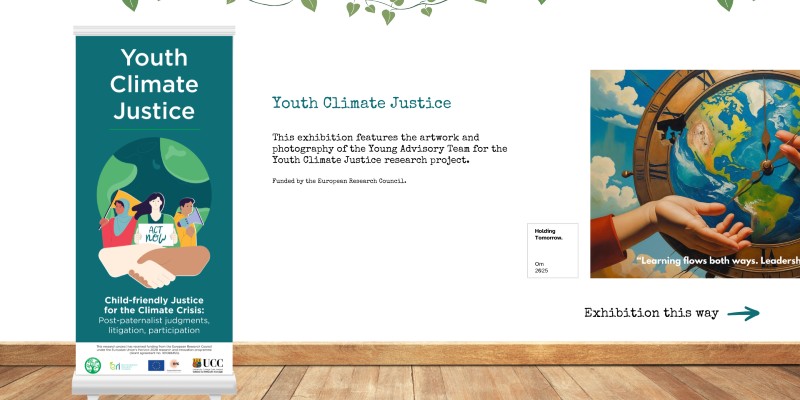Blog
Research with the YCJ Young Advisory Team!

Over the past few months, the YCJ Young Advisory Team partook in a series of 4 online research workshops and created stunning artwork to share their views of child/youth climate action and leadership. An exciting milestone for the YCJ project with another fieldwork stint completed!
Not only has the Youth Climate Justice project’s Young Advisory Team (YAT) helped to advise on the many research activities and elements over the past year, but they have also contributed to invaluable research on children/youth climate action and leadership! After working with the YAT and learning about the incredible journeys of each of the 11 young advisors, we approached them with the opportunity to contribute to the very research they had been advising on since the start of their term. Spanning across 11 countries and 5 continents, each young advisor has unique experiences of the climate crisis while simultaneously sharing similarities as children/young people leading on the climate.
Led by PhD researcher Emily Murray, along with child/youth participation expert Katie Reid and Prof Aoife Daly, the YAT partook in a series of 4 workshops between May and July 2025. The workshops were facilitated online and consisted of group discussions on different types of climate leadership, intergenerational dynamics, and the importance of nature; sharing photos and artwork with each other to demonstrate what climate leadership looks and feels like; and a final virtual art exhibition featuring a few members of the YCJ advisory board and working professionals.
During the conversations with the young advisors spread out over the first two workshops, we learnt about some common experiences children/youth face through the action they take. For example, a few young advisors discussed the concept of ‘tokenism’ and how even though they are included in decision-making spaces, it doesn’t always mean they are taken seriously or given the opportunity to make meaningful contributions. But like one of the young advisors reminds us, “sometimes children notice things that adults forget, like children when they go to forums they ask good questions, they speak up and share ideas about how to take care of nature and protect the rights of all people” (Young Advisor, 2025).
In the final workshop, which consisted of a virtual art exhibition, the young advisors were able to share their artwork and views with some adults from the YCJ professional advisory board, including a member of the UN Committee on the Rights of the Child. During this fruitful dialogue, the young advisors, visiting adults and facilitators discussed the importance of making spaces for children/youth and adults to work together and the many different aspects of climate justice. One of the young advisors expressed that:
Young leaders inspire others in their community to follow young people, [and he encouraged] individuals of all ages to get involved and take meaningful steps like reducing waste, recycling, organizing cleanups or raising awareness to help address climate change and protect the planet for future generations.
Another young advisor made the point, however, that they face challenges being heard: “with the way society works, children’s voices are often unheard and they’re not given the same platforms that adults are” (Young Advisor, 2025) and demonstrated this with small podiums next to large podiums in a collage (you can view this artwork here from YCJ Young Advisor 3). In this example, and many others, it is easy to see how and why art can be such a powerful tool for expression.
All of the young advisors showcased their climate action and stories, many of which stem from first-hand experience on the frontlines of the climate crisis. They shared actions from local to global, and gave examples of the many pathways one can take to get involved and advocate for human rights and the environment. As one of the adult working professionals reminded us, we must “use the spaces that we’ve got as creatively and helpfully as we can” and it is evident that the young advisors are doing just that.
After wrapping up this online fieldwork with a diverse group of young people around the globe, one thing was clear: children and youth are experiencing the climate crisis in every part world while also standing up as leaders to not only protect their rights, but the rights of future generations and the natural world. Whether it’s through beach cleanups, educational workshops or climate lawsuits, children and youth are making a mark in their communities and beyond to make the planet a more just, a safer place.
Written by PhD Researcher Emily Murray.

